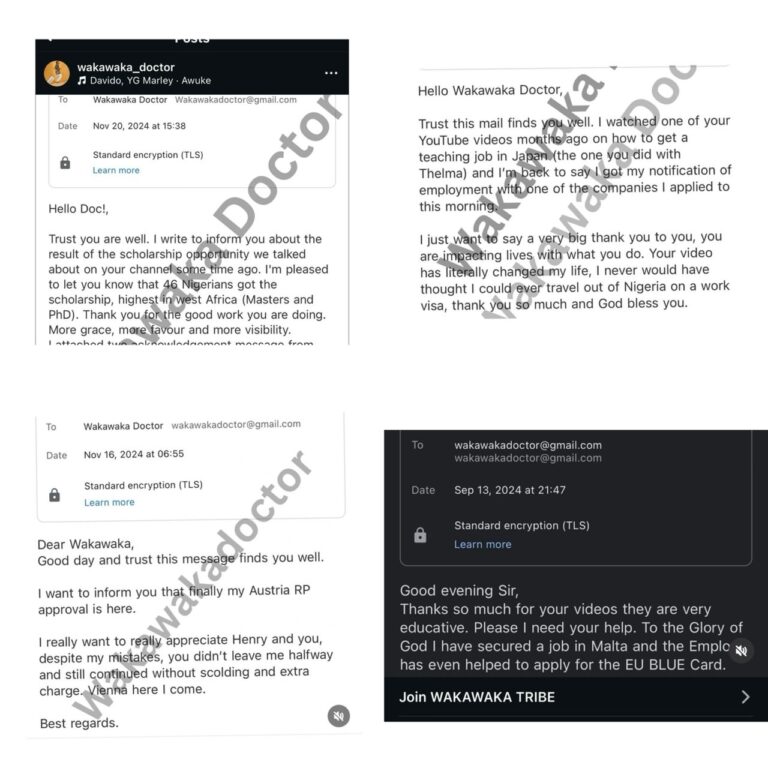How to Always Get Scholarships for International Students
Getting a fully funded scholarship as an international student can make schooling a lot easier. We all know how expensive studying abroad can be, and not everyone can afford it.
But with a fully funded scholarship, you can get most, if not all, of your expenses covered, making it easier to focus on your education without stressing about the cost.
It’s like your golden ticket to a world-class education. But because these scholarships offer so much, they’re very competitive. So, how do you make sure you stand out and secure one?
Step 1: Looking for Fully Funded Scholarships
Knowing the right places to search for scholarships is the first step:
1. University Websites/Financial Aid Offices
The first place to check when searching for fully funded scholarships for international students is the official website of the university of your choice. University websites tend to have a dedicated section for financial aid and scholarships.
The university may offer internal funding opportunities based on a particular subject or location or they could make a list of external scholarships students can apply to.
You will find detailed information about everything you need like qualifications required and deadlines for applications. You can also contact the university’s Financial Aid Office for more information regarding the scholarship and your discipline.
2. Scholarship Sites
Another place to check out when looking for fully funded scholarships for international students is scholarship sites. They provide information about funding opportunities aimed at a particular student group, in numerous study destinations, and scholarships that focus on a particular subject.
Use trusted online scholarship portals like Mpower or InternationalScholarships to get accurate information about the scholarships available. It’ll also provide the like application process and eligibility criteria.

3. X Formerly Known as Twitter
You can find trusted and accurate scholarship details on my Twitter account. You can also get more information on other accounts, just make sure to do your own research and ensure that the information provided is accurate.

Step 2: Preparation
Once you’ve done your research, confirmed eligibility, and read through the application process, it’s time to prepare. This step is crucial if you really want to get a fully funded scholarship or any scholarship of any kind.
The eligibility criteria for fully funded scholarships for international students can range from academic excellence to involvement in extracurricular activities.
- Academic Excellence
A very common criterion for most schools is a strong academic record. So, if you’re still in high school or you’re an undergraduate or looking to pursue your Master’s degree or PhD abroad, don’t play with your academics. Some universities consider applicants based on their regular university application so getting high grades can help.
Academic excellence is not limited to a student’s GPA (Grade Point Average), it also focuses on high scores in examinations like the SATs, research publications, advanced coursework, and other educational achievements.
For GPAs, a student with a high GPA – usually between 3.5 to 4.0 – is more likely to get a fully funded scholarship and SAT scores above 1500 are looked at positively by scholarship committees.
But if you have a 2nd class lower or a HND, there’s still hope.
- Involvement in Extracurricular Activities
Some universities give students who are involved in extracurricular activities and also excel in academics fully funded scholarships. So, if you’re great at swimming, football, or any internationally recognized sport, it can boost your application. Leadership roles or volunteer work can also create a positive impression on scholarship committees.
Tips on Standing Out in Your Application
- Showcase Unique Experiences: Highlight any unique experiences that set you apart from other applicants. This could be anything from a special research project you worked on to an unusual skill or hobby that demonstrates your creativity and initiative.
- Demonstrate Leadership: Scholarships often look for candidates who show leadership potential. Whether it’s leading a student organization, initiating a community project, or mentoring others, be sure to showcase these experiences in your application.
- Emphasize Overcoming Adversity: If you’ve faced significant challenges or adversity in your life, use your application to tell your story. Overcoming obstacles can demonstrate resilience, determination, and a strong character—qualities that scholarship committees value highly.
Step 3: Applying for Fully Funded Scholarships
1. Create a Solid Application Package
Start by gathering all necessary documents well in advance. Typically, these include academic transcripts, English proficiency certificates like TOEFL, and letters of recommendation. Building strong relationships with academic mentors is crucial, as they can provide personalized and insightful letters that reflect your strengths and character. Prepare your documents early so that when scholarship applications open, you can submit them promptly.
2. Scholarship Essay/Cover Letter
Your scholarship essay or cover letter is your opportunity to stand out. Focus on blending relevance, storytelling, and brevity. The essay should be clear, concise, and free from spelling or grammatical errors. Stick closely to the key theme, and start with a compelling introduction that grabs the reader’s attention.
After writing your essay, proofread it multiple times and ask friends or family to review it as well. A fresh set of eyes might catch errors you missed. Your essay should project your goals, dedication, and how you can add value to the scholarship program or institution.
For example, if the scholarship emphasizes community engagement, highlight any volunteer work or community service you’ve done to demonstrate your alignment with their values.
3. Be Realistic
Fully funded scholarships are highly competitive, and even outstanding candidates might not secure one. Be realistic about your expectations, and don’t limit yourself to just one application. Apply for multiple scholarships to increase your chances of success.
Lastly, carefully read and follow the application instructions to ensure nothing is overlooked. If anything is unclear, don’t hesitate to reach out to the scholarship provider for clarification.
Related: 15 common mistakes to avoid when applying to study abroad
Step 4: The Interview Stage
After the application stage, you’ll be invited for an interview. This can be virtual or in-person.
1. Research the Scholarship and Institution
- Understand the Scholarship’s Purpose: Learn about the goals and values of the scholarship program. What is the scholarship committee looking for in candidates? Are they prioritizing leadership, academic excellence, community service, or something else?
- Familiarize Yourself with the Institution: Research the university or organization offering the scholarship. Understand their mission, values, and any specific programs or initiatives they are proud of. This knowledge can help you tailor your responses to align with their expectations.
- Review the Application Materials: Go through your application, essay, and any other materials you submitted. Be prepared to discuss and expand on any aspect of your application during the interview.
2. Prepare for Common Interview Questions
- Personal and Academic Background: “Tell us about yourself,” “Why did you choose this field of study?” or “What are your career goals?”
- Motivation and Fit: “Why do you want to study at this university?” or “Why do you deserve this scholarship?”
- Strengths and Weaknesses: “What are your strengths and weaknesses?” or “Tell us about a challenge you’ve faced and how you overcame it.”
- Behavioral Questions: “Give an example of a time you demonstrated leadership,” or “How have you contributed to your community?”
- Goals and Plans: “Where do you see yourself in five years?” or “How will this scholarship help you achieve your career goals?”
- Align with Scholarship Values: When answering questions, ensure your responses reflect the values and priorities of the scholarship program. For example, if the scholarship emphasizes community service, highlight your volunteer work and its impact.
- Be Authentic: Avoid giving overly rehearsed answers. Authenticity resonates with interviewers, so be honest and reflective in your responses.
3. Practice Your Responses
- Simulate Real Conditions: Conduct mock interviews with a mentor, teacher, or friend acting as the interviewer. Treat these as if they were the actual interview to get comfortable with the format and pacing.
- Record Yourself: If possible, record your practice interviews. Review the footage to identify areas for improvement, such as body language, tone, or filler words.
- Focus on Clarity and Conciseness: Practice delivering your answers clearly and concisely. Scholarship interviews often have time constraints, so it’s important to get your points across efficiently.
- Show Interest and Engagement: Prepare thoughtful questions to ask the interviewers at the end of the interview. Questions about the program, opportunities for scholarship recipients, or the university’s community can show your genuine interest.
4. Present Yourself Professionally
- Professional Attire: Even if the interview is virtual, dress in professional attire as you would for an in-person interview. This shows respect for the process and helps you feel more confident.
- Maintain Eye Contact: Eye contact conveys confidence and engagement. In virtual interviews, look at the camera to simulate eye contact with the interviewer.
- Posture: Sit up straight and avoid fidgeting. Good posture shows that you are attentive and respectful.
- Smiling and Nodding: Use positive facial expressions and nod occasionally to show you’re engaged and understanding the conversation.
5. Manage the Interview Environment
For Virtual Interviews:
- Technical Setup: Test your internet connection, microphone, and camera beforehand. Ensure you have a quiet, well-lit space where you won’t be disturbed.
- Background: Choose a neutral, uncluttered background for the interview. This keeps the focus on you rather than what’s behind you.
For In-person Interviews:
- Arrive Early: Aim to arrive at the interview location at least 15 minutes early. This shows punctuality and gives you time to relax before the interview.
- Bring Necessary Documents: Carry extra copies of your resume, scholarship application, and any other relevant documents in a professional folder.
6. During the Interview
- Pay Attention: Listen carefully to the interviewers’ questions and comments. Don’t rush to answer—take a moment to ensure you fully understand the question before responding.
- Clarify if Needed: If a question is unclear, don’t hesitate to ask for clarification. It’s better to seek clarity than to answer incorrectly.
- Structure Your Answers: Use the STAR method (Situation, Task, Action, Result) for behavioral questions. This helps you provide a complete and organized answer.
- Stay Positive: Even if discussing challenges or weaknesses, focus on what you learned and how you grew from those experiences.
7. Follow Up After the Interview
- Express Gratitude: Send a thank-you email to the interviewers within 24 hours of the interview. Express your appreciation for the opportunity to interview and reiterate your enthusiasm for the scholarship and the institution.
- Personalize the Message: Reference something specific from the interview to make your thank-you note more personalized and memorable.
- Self-Evaluation: After the interview, take some time to reflect on how it went. Consider what went well and what could be improved for future interviews.
- Prepare for Next Steps: If the interview is part of a multi-step process, start preparing for the next stage based on any feedback you received.
Conclusion
Fully funded scholarships for international students are life-changing opportunities. But remember, rejections are part of the process, and each application brings you closer to success.
If you need some help, reach out to WakaWaka Doctor, he’ll be happy to assist you.







I love this programe